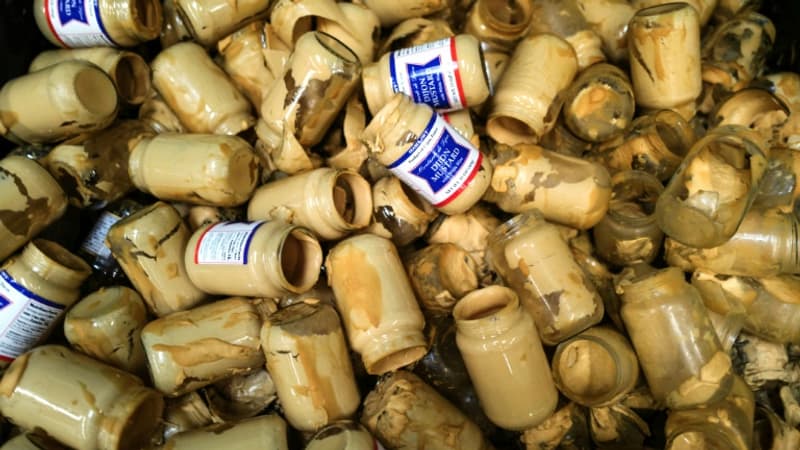All supermarket customers have seen it. It is not just mustard that has been missing from our shelves for several months now. The stock-out rate, that is, the proportion of missing products in supermarkets, reached 5.7% in August according to NielsenIQ, that is, 1.6 points more than the same period in 2021.
At the moment, these are deficiencies rather than deficiencies in the strict sense (with the exception of mustard). This means that if certain products are out of stock, the shelves are replenished periodically. The median duration of breakouts is four days, NielsenIQ specifies. The deficit for the sector still amounts to 2,700 million euros.
Mustard, vinaigrette, cooking fat
Which products have a higher than average breakage rate? Mustard obviously with a rate of 21.2% since the start of the war in Ukraine. Logically followed by vinaigrettes containing mustard (-14%) but also cooking fats (-11.1%) to which the French have resorted due to lack of oil, sandwiches (-10.5%) or still water (-9.2%). .
For some products, as we can see, shortages were maintained by consumers who tended to overstock for fear of running out of stock. This is the case of oils, especially sunflower oil, which suffered supply difficulties due to the war in Ukraine but whose high frequency of purchases has delayed its return. Oil sales rose 13% between March and August, while the product was regularly missing from shelves.
Preoccupation with potatoes or milk
But the most consumed product since the beginning of the year is frozen poultry. Poultry is the meat product that is subject to the highest inflation. In August, we were close to a 15% increase in a year. It is again a precautionary purchase, but this time not for fear of shortages, but for fear of rising prices.
However, the products that have sold out most frequently since the beginning of the year are back on the shelves. Mustard availability rate increased to 73% in August (after a low of 56.8% in June) and oils have remained above 90% for several weeks.
But after these new product breaks arise concerns. This is the case of potatoes, honey, milk or even corn whose crops seem to have suffered from the summer drought. Products that probably will not know the fate of mustard but whose prices should rise considerably by the end of the year.
Source: BFM TV


